


The Kerbal Space Program is one of those rare games that thinks well outside the box. How many games can you think of allow you to make your own spaceships and launch them into space with more-or-less realistic physics? It's a game with the creation-like aspect of Spore, the do-it-yourself mentality of Minecraft, and cutesy characters reminiscent of Rayman's Rabbids. And, well, it's not even finished yet.
I'm not great at explaining such a unique title, but I had a chance to ask two of the developers behind the Kerbal Space Program, Bob Holtzman and Chad Jenkins respectively, a few questions about their space-flight simulator. As you'd expect, they do a much better job at explaining the game than I ever could, and give some fascinating insights to how their indie-title came to be.
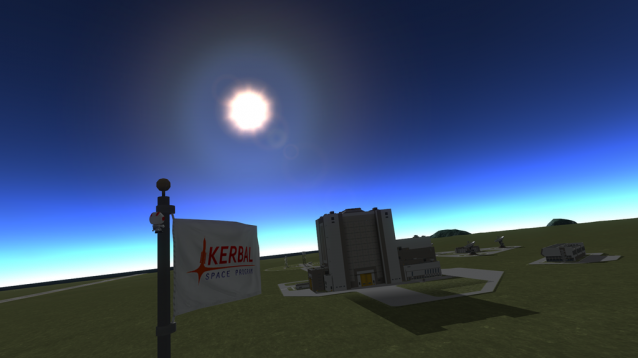
1.Give us a rundown of what Kerbal Space Program is all about. It's quite the unusual game.
a. Bob: Kerbal Space Program is a space agency simulator and really crosses multiple genres, so we often call it a multi-genre game. Players build rockets, planes and other space crafts with the intention of exploring the Kerbal Solar System. Space travel isn’t easy though, and we really try to adhere to real physics when possible, which means reaching the Mun or other planets, won’t be easy. The good news is Kerbal engineers appreciate a good explosion like the rest of us, so your rockets that don’t make it back safe and sound, will be a lot of fun to blow up.
2.Where is KSP at in terms of development? The game is available for purchase on Steam right now, but it's my understanding it is not finished yet.
a. Bob: That’s correct. KSP actually has quite a long way to go before it will be complete. As we’re an indie developer, we decided to offer early access to the game and after a while of doing that on our own we were one of the first on Steam to be part of their early access program. We’re proud to have their support. Our recent update, 0.21, was the first of many focused on Career Mode, which will provide almost an RPG-like layer on top of our existing sandbox state. We just opened our Astronaut Complex, where players hire new astronauts for their missions. We also completely updated our space center with new building models and scenery, including a major overhaul of the Vehicle Assembly and Space Plane Hangar buildings. Our development team did some amazing work to not only improve the visual aspects of these buildings but to also improve their performance as part of the game.
b. Chad: This is just the first of several updates for Career Mode, which create more structure within KSP. Players will not only hire astronauts, but be tasked with building rockets under budget and take on contracts to earn money and reputation. Career mode is taking all the open universe we have already created and building a game on top of it, it is an exciting time because this is where we wanted to get since the beginning.
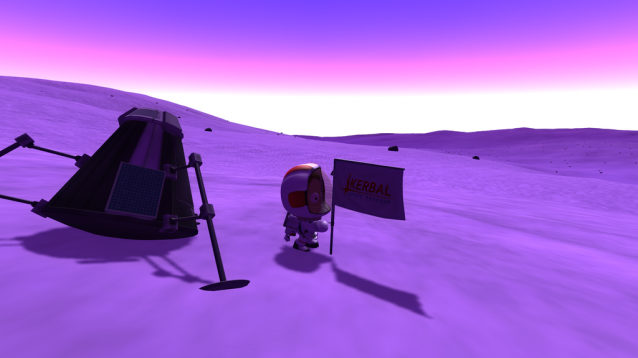
3.Do people making KSP have a background in avionics? It's a very technical game—many have praised you guys for your realistic physics.
a. Bob: Unless you count our lead developer Felipe Falanghe’s experiences with fireworks as a kid, absolutely not. It was Felipe’s fascination with bottle rockets as a child that was the impetus for Kerbal Space Program. He would create little foil men called Kerbals and launch them into “space” and just like we see so often in the game, they wouldn’t return home safely.
b. Chad: We always try to aim for keeping things realistic but at the same time, fun. There are cases where things are more and less realistic in KSP. While we know KSP is science fiction, we didn’t want to create something that was fictional science. We’ve learned from our community this “realism” is a big part of the fun for them.
4.How much of your development time has been devoted to researching physics, if any?
a. Chad: For everything that comes up in the game, we typically do a massive amount of research. In my case, I spend a lot of time on the internet, looking anywhere from Wikipedia to physics forums and even reading reference textbooks I’ve bought on the subject. For instance, I had to take a crash course in control systems and PID (Proportional, Integral, Derivative) controllers to work on the in-game Stability Assistance System (think of it as a pilot’s assistant, not auto-pilot) for our recent 0.21 update. We’ve been able to learn quickly and integrate into KSP with some success. These are just really complicated subjects and we’re trying to get as much of a broad picture as we can in a reasonable amount of time.
5.What's your ideal audience for Kerbal Space Program? Who are you trying to reach with such a technical game?
a. Bob: That’s a tough question because the business side of you wants everybody to buy a copy but the reality is everybody won’t love the game. We definitely don’t think of it as a technical game. The Kerbals were meant to provide brevity and assure the game isn’t overly serious. We are always impressed with the people who build ships we could never imagine but all laugh at a good explosion or the expressions of the Kerbal astronauts while in flight. So I guess the short answer to your question is our ideal audience is anybody who’s dreamed of the stars, planned for success in spite of prior failure or loves to tinker and laugh.
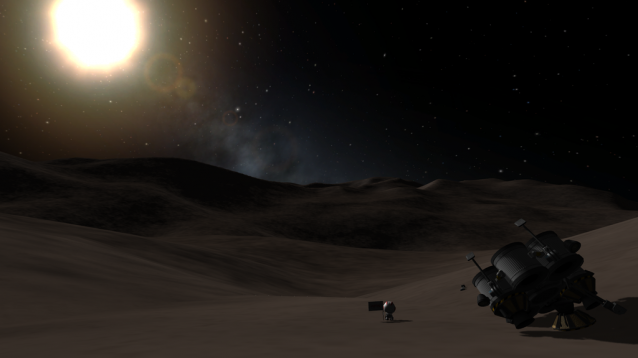
6.I hear KSP has received a lot of attention from the scientific and astronomic communities, as well. Care to comment on your scientific cred?
a. Chad: All of us really look up to and respect the scientific community. I grew up in Florida and NASA had a huge influence on me. Space shuttle launches were my favorite thing to see and hearing the double sonic boom when a shuttle would re-enter the atmosphere was just plain cool. My childhood heroes were those brave individuals who stepped aboard rockets to push the boundaries of human exploration. That they can find enjoyment in something we’ve worked on is great. It’s all I can do for them as thanks for all of the inspiration and love of learning they helped foster in me.
7.Okay, I've got a loaded question for you. If you could only have one, which would you prefer: praise from the scientific community or praise from the gaming community, and why?
a. Bob: Well, we’re proud of both – as noted by Chad’s response to the prior question. But we’re an indie developer so we need praise from the gaming community to help us keep developing KSP. Our community has been amazing and their praise has helped our audience grow while we work on development.
8.Lastly, do you have any recommendations for beginners?
a. Bob: Laugh at the Kerbals and watch tutorial videos to help you improve your building plans.
b. Chad: Just have fun really. Build something interesting and watch what happens. There’s no wrong way to play KSP. Just do whatever it is that you enjoy the most. When you’re ready to start challenging yourself, set some goals, like getting into orbit or to the Mun. You’ll learn a lot about orbital mechanics and rocketry along the way. Ask the community for help – there’s a lot of great people out there happy to help.
This interview with Bob Holtzman and Chad Jenkins was conducted by Lowell Bell on August 6th, 2013 via email. It may not be reposted in its entirety without permission.
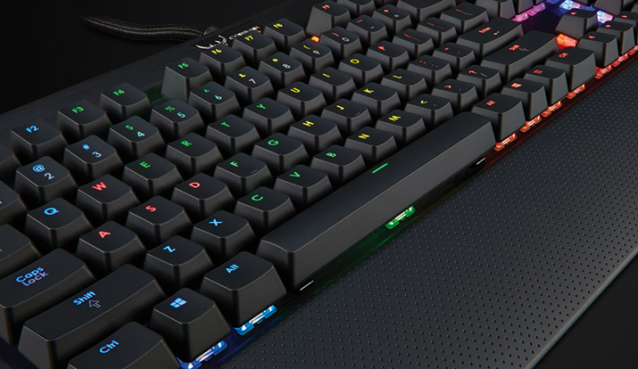

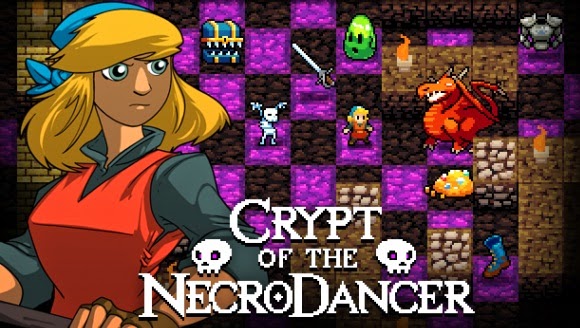

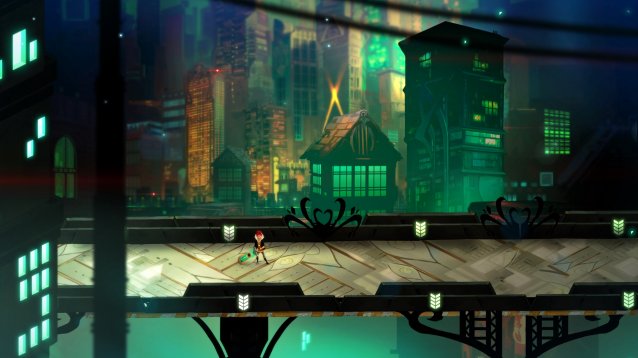 GDC 2013 Preview: Transistor
GDC 2013 Preview: Transistor Enemy Front Wiki – Everything you need to know about the game. .
Enemy Front Wiki – Everything you need to know about the game. .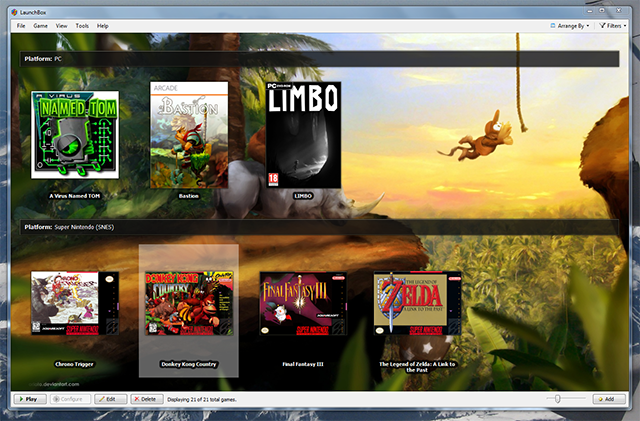 Browse Your Games In Style – Even ROMs – With LaunchBox
Browse Your Games In Style – Even ROMs – With LaunchBox Super Street Fighter 4 :: Xbox 360 Hakan Guide
Super Street Fighter 4 :: Xbox 360 Hakan Guide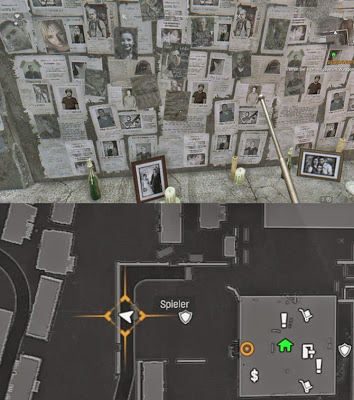 Dying Light (PC) Secrets and Easter Eggs
Dying Light (PC) Secrets and Easter Eggs